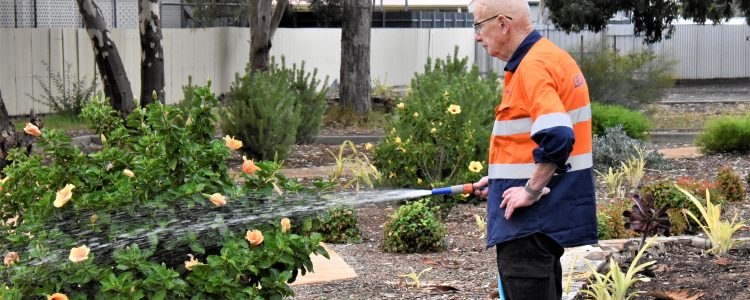
At Adaptive Workplace Solutions we frequently organise work placements for clients as part of their return to work and rehabilitation plan. Work placements are vital for injured workers who are unable to return to their place of employment to re-establish positive work habits, gradually increase their duties and develop new skills.
Why someone may need a work placement
Generally after a work injury, the injured worker returns to their place of employment quickly on a graduated return to work plan starting with light duties. However, in some cases, there are no light duties available (due to the size of the employer, the nature of the work etc) and a person may need a suitable work placement for a short period of time in order to build up their capacity and strength before returning to their pre-injury role.
In other cases, a person's specific injury may prevent them returning to either their workplace or their role in which case they would be working towards a new employment goal. This pathway may include some training and will almost always include some on the job experience, building vital skills through a voluntary work placement.
Benefits to the Worker
- Retain or Regain positive work habits. If people are out of work for a prolonged period it can be hard to get back into a good routine for work. It is better for people to keep up their routine through attending a workplace regularly rather than have an extended period off work and then try and rebuild these habits.
- Social component of work. It can be very isolating for people to be off work through a work injury. Work provides valuable opportunity for socialising and being part of a community.
- Mental Health. Purposeful and valued activity at work promotes positive mental health.
- Physical conditioning. Attending work is an important part of people's physical recovery. A work placement provides an opportunity for a graduated plan, where tasks and time at work can be increased gradually, allowing the person to regain their strength, stamina and ability to engage in everyday work-related tasks. It is important that all medical restrictions are taken into consideration and that the person only engages in duties within their capabilities, allowing them to build up steadily.
- Skill Building. When a goal of new employment is set, a work placement provides a great opportunity to build skills for the new role and develop confidence.
- Experience and Pathway to New Employment. When applying for new employment, most employers look for people with experience. A work placement provides an opportunity to gain experience in a new role, and potentially even a glowing reference. This will put them in good stead when applying for new jobs.
Benefits to the Host Employer
- Additional team member at no extra cost. Who couldn't benefit from a free extra set of hands during busy times? A work placement is completely unpaid, so the host employer benefits from the extra staff member and all of the experience, knowledge and skills they bring for the duration they are there.
- Insurance is covered. We understand that many potential employers have concerns about the implications for their business if the person was to make their injury worse, or re-injure themselves while on placement. Return to Work SA cover the insurance for all of these potential situations, as well as any damage that the worker on placement may accidentally cause. This gives peace of mind that there is no risk to taking someone on for a work placement.
- Promoting a diverse workplace. Having someone on work placement can add to the diversity of your workplace culture.
- Contributing to the community. It can give business owners and host employers a great feeling to know that they have helped someone to get back on their feet by assisting them with important steps in their rehabilitation.
- Incentives to offer paid employment. Sometimes host employers are so impressed with the person there on placement that they want to offer them a paid position. This is not an expectation during a work placement, but it is a great bonus for all parties if it is the right fit. In this case the placement provides an opportunity to test out an employee to see if they are a good fit before offering employment. Return to Work SA provide the RISE scheme, a financial incentive for employers to take someone on after a work injury.
How does it work?
Generally, we will contact relevant workplaces to arrange a work placement that is a good fit for that individual client and their needs. At that point, when a host employer expresses interest, we set up a meeting involving the host employer, the client and an Adaptive Workplace Solutions staff member. This meeting gives the host employer the chance to meet with the client and see if they will be a good fit. We can also discuss practical considerations including time component, any medical restrictions that need to be followed etc. From there a placement agreement is drawn up and signed by all parties and the person can begin!
We frequently require host employers across the whole Adelaide and Hills area to support clients with work placements in a range of industries. If you think that your workplace may be interested in taking someone on for a work placement or have light work duties frequently available, we would love to hear from you. Give us a call today and we can discuss how you can get involved!

